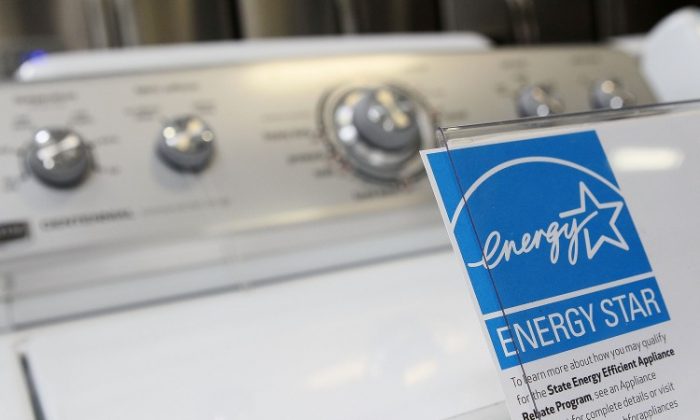‘‘Efficiency’ standards render other American appliances … less useful, more breakable, and more expensive to repair,’ the presidential memo states.
President Donald Trump on May 9 moved to rescind appliance energy efficiency standards, calling them “unnecessary radical green agenda policies.”
In a memo to the secretary of the Department of Energy, Trump said, “Water conservation requirements for faucets, showers, bathtubs, and toilets … make bathroom appliances more expensive and less functional.”
“‘Efficiency’ standards render other American appliances like clothes washers and dishwashers less useful, more breakable, and more expensive to repair. The Federal Government should not impose or enforce regulations that make taxpayers’ lives worse.”
The memo orders Energy Secretary Chris Wright to review and rescind rules limiting water use in showerheads, faucets, dishwashers, toilets, urinals, and washing machines, or return these rules to the bare minimum required by the Energy Policy Act of 1992.
The affected program is best known by the name Energy Star, a program handled by the EPA in coordination with the Department of Energy. Under the program, the EPA establishes energy efficiency guidelines, and appliances in a given category that meet these specifications can display the ENERGY STAR logo.
Trump said that this would help to increase the effectiveness of bathroom products, saying that standards imposed in the aftermath of the 1992 legislation had reduced consumer choice and made products less functional compared to before the legislation.
“Efficiency standards render other American appliances, like clothes washers and dishwashers, less useful, more breakable, and more expensive to repair,” the White House said in a fact sheet on Trump’s memo.
“Ultra-efficient washing machines cost at least $100 more according to the Department of Energy. Updated dishwasher regulations caused those appliances to take two hours or more to complete a normal load of dishes—about twice the time of pre-standards models.”
Earlier, on Jan. 20, Trump signed an Executive Order to “safeguard the American people’s freedom to choose from a variety of goods and appliances, including but not limited to lightbulbs, dishwashers, washing machines, gas stoves, water heaters, toilets, and shower heads.”
The same day, Trump signed several measures passed by Congress under the Congressional Review Act repealing rules from President Joe Biden’s administration related to energy efficiency.
The measures repealed regulations on gas water heaters and walk-in coolers and freezers, as well as energy conservation standards for some appliances and some consumer products and commercial freezers.
“It’s all about common sense,” Trump said while signing the legislation flanked by Republican lawmakers.
The rescission comes amid an ongoing “reorganization” of the Environmental Protection Agency under Director Lee Zeldin.
In a video, Zeldin said that prior to the Trump administration, the regulatory agency was spending $63 billion “including all sorts of political green slush funds”—while it cost just around $8 billion to $10 billion to run the agency.
“This reorganization will bring much needed efficiencies to incorporate science into our rulemakings and sharply focus our work on providing the cleanest air, land, and water for our communities. It will also save at least $300 million annually for the American people,” Zeldin said.
Such an exclusive focus on air, land, and water cleanliness marks a departure from the climate activism that has defined the agency in the past, and fits into Trump’s larger commitment to reducing regulations that the president said harm American energy production and use.

